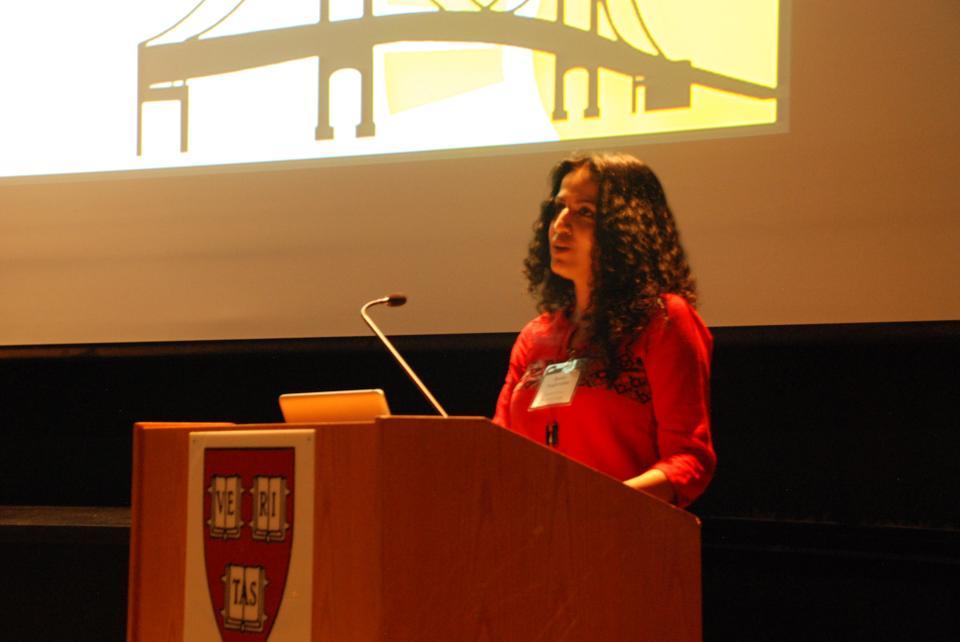
News
Summers Will Not Finish Semester of Teaching as Harvard Investigates Epstein Ties

News
Harvard College Students Report Favoring Divestment from Israel in HUA Survey

News
‘He Should Resign’: Harvard Undergrads Take Hard Line Against Summers Over Epstein Scandal

News
Harvard To Launch New Investigation Into Epstein’s Ties to Summers, Other University Affiliates

News
Harvard Students To Vote on Divestment From Israel in Inaugural HUA Election Survey
Diverse Takes on Alleviating Poverty at “Bridging the Gap”

Harvard University Students Taking On Poverty (STOP) hosted a joint lecture entitled “Bridging the Gap” at the Science Center on Saturday, featuring 11 guest speakers who shared their views on pressing poverty-related subjects.
“Our goal is informing the public about issues in poverty that they might be blind to,” said Marjorie LaCombe ’13, president of STOP. Each speaker had approximately 10 minutes to present, with the ultimate goal of giving attendees a well-rounded view of some critical aspects of poverty all over the world.
The subject material and style of presentation was extremely diverse: professors, journalists, and poets all had something to contribute. The first speaker was Harvard Professor of Philosophy and Human Rights Mathias Risse, who discussed the inherent injustices in the free market that he said help perpetuate poverty. He argued that helping to alleviate poverty was more a matter of correcting systemic inequality than relying on individual charity.
“Helping the poor is a matter of justice, not a matter of beneficence,” said Risse.
Next up was Rema Nagarajan, a journalist for The Times of India, the widest-read English newspaper in India. Nagarajan delivered a forceful speech, arguing that despite India’s rapidly rising GDP, the majority of Indian citizens were being left behind.
“Sixty percent of people earn about two dollars a day,” she said.
Anna Griffin, a reporter at The Oregonian, told the audience about Portland’s successes combatting poverty through urban planning.
Shining a more aesthetic light on the darkness of poverty, Harvard undergraduates Samantha A. Berstler ’14, and Ekene I. Obi-Okoye ’12 recited their own original poetry on the issue.
Amanda Fernandez, who represented Teach for America, also spoke at the event, advocating the importance of education in combating poverty.
From a more vocational point of view, Yvette Castro talked about Fashion Fights Poverty, a group that looks to help the poor through artisanal training and socially conscious consumerism.
Rounding out the evening were Elizabeth Toulan, senior attorney at Greater Boston Legal Services, and Katharin Dyer, a board member of CARE USA, who talked about how poverty can be combated via legal representation and humanitarian support, respectively.
The final presentation was given by 13-year-old Tajonna, whose last name was omitted from the program, and her chaperone, Samantha Wolfe, representing the Massachusetts Face of Homelessness Speakers’ Bureau. Tajonna told the story of her time living on the streets.
Themes such as education, economic support, and humanitarianism pervaded the night. But many of the speakers made special reference to Harvard, and the significant changes that students at the College can affect with regards to poverty.
Despite the array of accomplished speakers at the event, it attracted about 50 people, leaving many of the seats in the Science Center empty.
Want to keep up with breaking news? Subscribe to our email newsletter.
